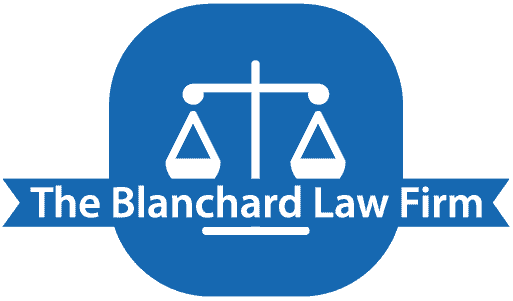
11 Nov The Importance of Updating Your Estate Plan After Major Life Events
Major Life Events: When to Update Your Estate Plan
Creating an estate plan is a critical component of financial management that provides security for individuals and their families. It serves as a blueprint for distributing assets, caring for dependents, and managing health and financial decisions when individuals can no longer do so themselves.
However, while creating an estate plan is a crucial first step, it is equally important to update it periodically, especially after significant life events.
Marriage
Marriage is one of the most significant events that affect estate planning. Upon marriage, spouses typically want to ensure that their partner is provided for in the event of their death.
Often, married couples will name each other as primary beneficiaries on assets like bank accounts, retirement funds, and life insurance policies. They may also want to appoint each other as agents in financial and healthcare powers of attorney, granting their spouse the authority to decide if they become incapacitated.
Failure to update an estate plan after marriage can lead to complications. For example, if one spouse passes away without naming their partner as a beneficiary or including them in the will, the distribution of assets could be governed by default state laws, which may not align with the couple’s preferences.
A new spouse could be left out or under-provided for, especially if the deceased had a pre-existing estate plan that favored other family members or previous partners.

Divorce
Divorce is another major life event that necessitates an immediate review of one’s estate plan. During divorce proceedings, people often overlook updating their estate documents, but failing to do so can have unintended consequences.
Without adjustments, an ex-spouse could remain the primary beneficiary on policies or accounts, and they may still have decision-making power over health or financial matters in cases of incapacitation.
In addition to removing an ex-spouse from beneficiary designations, it’s often wise to update other parts of the estate plan.
For instance, if you have children, you may want to ensure that guardianship and inheritance plans are clarified. An outdated estate plan can lead to legal challenges and confusion, as state laws vary in handling outdated beneficiary designations post-divorce.
Birth or Adoption of a Child
The arrival of a child, whether through birth or adoption, represents one of life’s most joyful events. However, it comes with a new set of responsibilities and estate planning needs.
Parents want to provide for their children’s futures, often including designating guardians and setting up trusts or savings accounts for education.
An estate plan should be updated to include a provision for the child’s care and education if both parents are unavailable. This might involve designating a trusted individual as the child’s guardian and establishing a trust to manage assets on the child’s behalf.
The trust can specify how funds should be allocated for education, health, and general living costs. Parents might also consider life insurance policies that ensure financial security for the child in case of premature death.
Financial Status
Increases or decreases in wealth require revisiting and possibly adjusting an estate plan. These changes can alter how one wishes to distribute assets, whether due to inheritance, a significant asset acquisition, a successful business venture, or even a financial setback.
If your wealth increases, setting up more sophisticated estate planning tools, like trusts, might be appropriate to manage your assets. A charitable trust, for instance, could provide tax advantages while allowing you to support causes you care about.
Conversely, a decrease in financial assets might require you to reassess your ability to offer certain legacies or reduce specific financial allocations within your plan.
Failing to adapt an estate plan to your current financial status can lead to unintended financial strain on your family or misaligned distributions that do not reflect your available resources.
Death of an Estate Plan Beneficiary or Trustee
The death of someone involved in your estate plan, such as a beneficiary, executor, or trustee, requires immediate updates to the plan. If a designated beneficiary dies, you must redistribute their estate.
Similarly, if the executor or trustee passes away, appointing a new, reliable individual becomes crucial for ensuring the smooth administration of your estate.
Not updating your estate plan in these situations can create many issues. For example, if an outdated executor remains in the will, the probate court might appoint someone who does not fully understand your wishes.
Meanwhile, if a deceased beneficiary’s share is not redistributed, their heirs might try to claim a portion of the estate, leading to family disputes.
Relocation to a New State or Country
When you move to a different state or country, your estate plan may need to be adjusted to reflect the laws of your new location. Each state has specific probate, tax, and property laws that affect estate distribution, inheritance taxes, and asset titling.
For example, community property laws in some states might impact how assets are distributed between spouses, whereas others follow equitable distribution principles.
Failing to update your estate plan after a move could result in your wishes not being honored. Consulting an estate planning professional familiar with the regulations in your new area is a prudent step to avoid unexpected legal complications.
Health Challenges or Disabilities
The onset of a chronic illness or disability can change a person’s priorities and financial requirements, often warranting an estate plan update.
A severe health diagnosis, for example, may lead someone to consider long-term care arrangements, or they may wish to update healthcare directives to clarify their treatment preferences.
Setting up a trust, for instance, could help manage assets while ensuring that Medicaid or other benefit eligibility remains intact. Similarly, if an heir or loved one is diagnosed with a chronic condition, you may want to create a special needs trust to protect their inheritance while preserving their eligibility for benefits.
Retirement
Retirement often shifts a person’s financial focus from accumulation to distribution, and your documents should reflect this change. At this stage, individuals should evaluate the tax implications of transferring retirement assets and the timing and conditions for passing on wealth.
Retirement often brings lifestyle changes, and retirees may spend more on healthcare, travel, or hobbies, which might influence how assets are distributed in an estate plan.
Additionally, retirees may need to update beneficiaries on retirement accounts, as many such accounts allow direct beneficiary designations outside of a will.
The Risks of Neglecting Estate Plan Updates
Failing to update an estate planning documents after major life events can have serious consequences. These risks include unintended beneficiaries, loss of assets to taxes, family disputes, legal complications, and delays in estate distribution.
When beneficiaries or executors are not updated, family members may be left fighting over inheritances, leading to court battles, broken relationships, and financial hardship.
Another significant risk is that outdated estate plans may increase tax liabilities for your heirs. Estate tax laws change over time, and states may impose additional inheritance or estate taxes.
Keeping your estate plan up-to-date can help minimize these burdens, ensuring that your loved ones receive the maximum possible benefit from your estate.

Steps for Keeping Your Estate Plan Current
- Schedule Regular Reviews: Even without major life events, reviewing your estate plan periodically every few years can help ensure that it remains aligned with your goals and the latest legal changes.
- Consult an Estate Planning Professional: Laws and regulations change, and working with an experienced estate planning attorney or financial planner can help you identify any necessary adjustments.
- Communicate Your Wishes: Discuss your estate plan with your loved ones, especially if you make significant changes. Open communication can prevent misunderstandings and conflicts.
- Document All Changes: Any modifications to your estate plan should be formalized through legal documentation, ensuring that they are enforceable and recognized by the courts.
- Update Beneficiary Designations: Alongside your will and trust, update beneficiary designations on accounts, insurance policies, and retirement plans, as these may override other provisions in your estate plan.
Final Thoughts
Updating your estate plan after major life events is essential to safeguarding your legacy, providing for your loved ones, and respecting your wishes.
Regularly reviewing and revising your estate is a small but impactful step toward achieving peace of mind and ensuring that the people and causes that matter most to you are protected and cared for as you intend.

Sorry, the comment form is closed at this time.